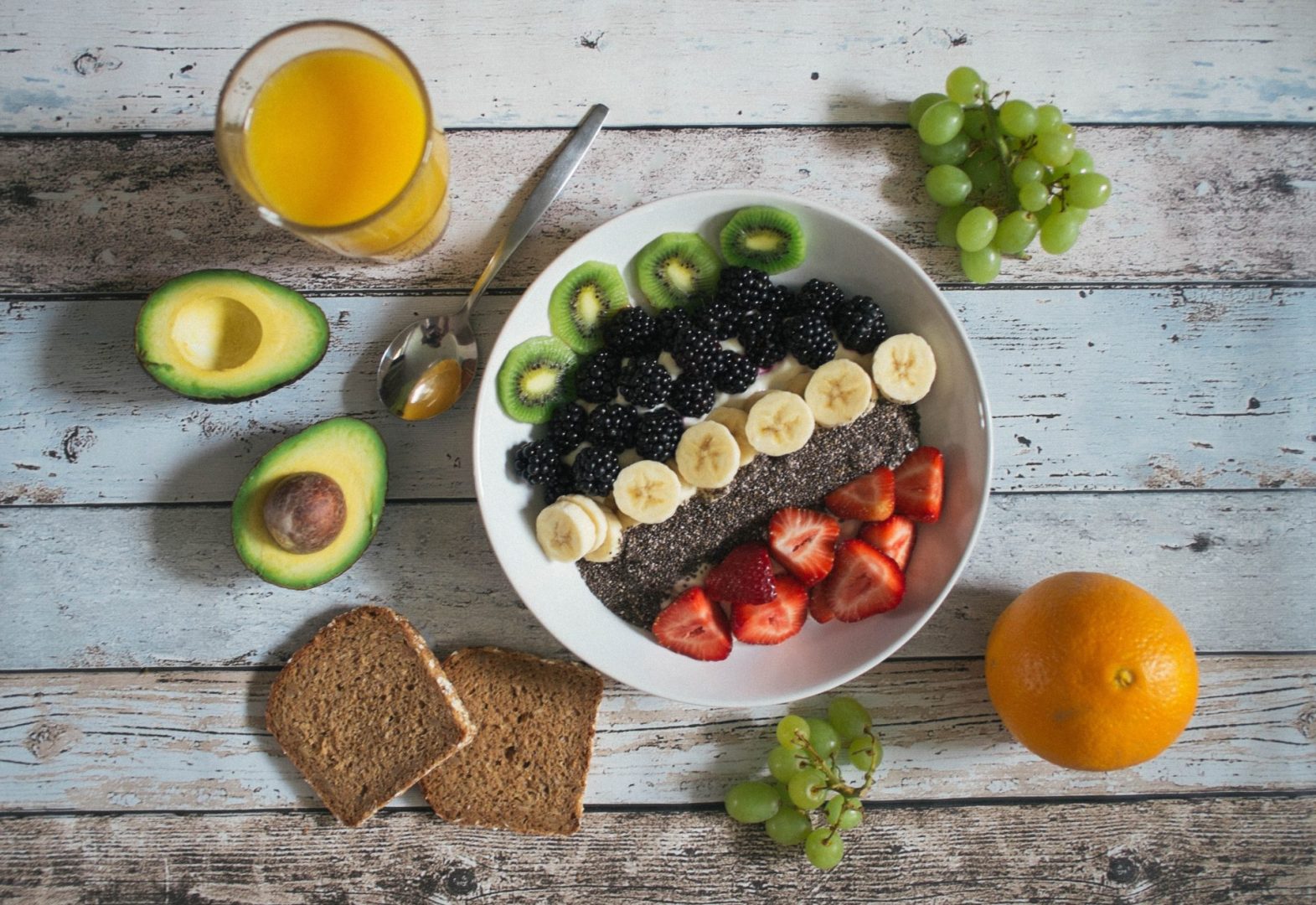It’s really important to fuel your body with the right nutrition to support you both mentally and physically. The majority of our serotonin (a feel good hormone) is found in our gut, so it’s likely that what we choose to eat will have implications on our mental state. Here’s our top tips to understand the nutrients you need, and where to get them from.
Potassium
What does it do? Potassium is a natural muscle relaxant that helps to regulate blood pressure, ease anxiety and promote relaxation.
Good food sources: Bananas, avocado, potatoes, citrus fruits, leafy greens, legumes.
How to incorporate: Try knocking up some homemade banana bread. Or simply add mashed avocado to toast, beans, a warming chilli or jacket potato to optimise your potassium intake.
Magnesium
What does it do? Magnesium helps regulate the nervous system, minimising feelings of restlessness and anxiety. It may also promote improved sleep quality and help alleviate aches, pains and muscle tension.
Good food sources: Dark chocolate, seeds, nuts, wholegrain bread, beans, lentils.
How to incorporate: Enjoy a relaxing bath with Epsom salts to naturally boost your magnesium levels. Opt for dark chocolate, nuts or seeds for a magnesium-rich snack to keep you going between meals.
Omega-3 fats
What do they do? Omega-3 fats are thought to have mood boosting, anti-inflammatory properties that may help to support mood and minimise risk of depression.
Good food sources: Olive oil, salmon, mackerel, anchovies, sardines, walnuts, seeds.
How to incorporate: Add some mashed anchovies or salmon, seasoned with lime and chilli flakes, to your lunch. Alternatively, a handful of nuts or drizzle of extra virgin olive oil makes a great meal addition to help support a healthy mind-set.
Selenium
What does it do? There’s some evidence to suggest that selenium may help to reduce oxidative damage associated with depression. Interestingly, deficiency has been observed in individuals suffering from depression.
Good food sources: Brazil nuts, prawns, eggs, tuna, pork, beef, chicken.
How to incorporate: Need a quick mid-afternoon pick me up? Just three Brazil nuts is sufficient to provide you with your daily recommended selenium intake. Alternatively, add prawns to a stir fry, tuna to salad or poached eggs to toast.
L-tryptophan
What does it do? L- tryptophan is an amino acid commonly found in protein sources, converted into serotonin (known as the feel good hormone) in the brain. Serotonin is also sleep-regulating, which may help to establish a sense of calm and improve both sleep duration and quality. Many protein sources also boost your norepinephrine levels, a neurotransmitter which may help improve concentration and cognitive function.
Good food sources: Chicken, fish, eggs, seeds, nuts.
How to incorporate: Try to ensure that you always add a source of protein to your meals to top up your tryptophan levels. Combine with a source of complex carbohydrate to promote serotonin uptake in the brain. Complex carbohydrates are also an excellent source of B vitamins, the levels of which can become depleted during periods of stress. Add chicken pieces to a sandwich, stir an egg into rice or add a spoon of Greek yogurt or peanut butter to your breakfast cereal or wholemeal toast.
All of your AIG customers have access to Smart Health’s nutrition service – free of charge. It’s their chance to ask a specialist any questions they have about their daily diet. They’ll get a personalised meal plans and weekly menus, all to help and support them in reaching their nutritional goals. Find out more: https://aiglife-smarthealth.com/en/omc-nutrition




